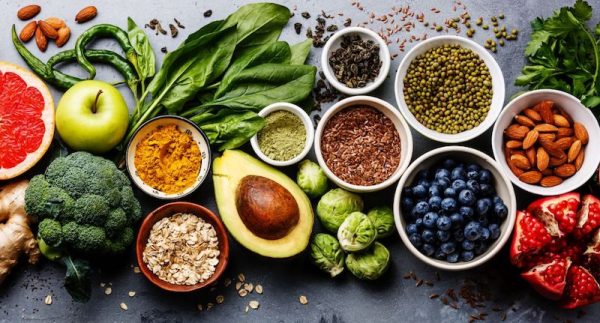By Natalie Varma
Could broccoli one day be the key to a cancer cure? Willietta Gibson, Ph.D., an assistant professor at Fayetteville State University believes it’s possible.
This summer, with a $50,000 grant from the Collaboratory, Gibson launched her research study, “Role of Phytochemicals on Hedgehog Signaling in Inflammatory Breast Cancer.”

Inflammatory breast cancer varies from other types of cancer in a couple of different ways. Although it has a low incidence, it has a high mortality rate because it’s so difficult to detect.
“It doesn’t present like most breast cancers where you have a solid tumor, but instead the cancer is more diffused in the tissues,” Gibson said.
Gibson indicated that inflammatory breast cancer is hard to catch not only in monthly self-examinations but also with official diagnostic tests. “By the time individuals go to the doctor, the cancer would have already spread,” she said. “And even the mammogram might miss it.”
Unlike other types of cancers, inflammatory breast cancer also tends to be resistant to common chemotherapy drugs, according to Gibson. Because of this, Gibson is driven to find other methods of treatment, potentially even from natural chemicals that can be found in our food and drinks.
Specifically, Gibson looks at phytochemicals – chemical compounds produced by plants. Some of the phytochemicals that Gibson studies can be found in household items like green tea, broccoli, and turmeric.
While the methods of treatment that Gibson studies are novel, her interest in cancer research is longstanding. Gibson herself was always interested in science to some degree, and it runs in her family too.
“Just about everyone in my family went into some aspects of science or math,” she said. “My dad was a chemist, my mom was a math teacher, one of my sisters is a medical doctor, and the other one is an engineer.”
Gibson said she was always encouraged by her family to pursue her interests, which have long revolved around the medical application of science. While she has maintained this focus throughout her career, she has worked in a number of research areas from HPV and its relation to cervical cancer to prostate cancer research.
“Growing up in a family that always wanted us to succeed and go to college and follow what was important to us, what interested us – that’s what prompted me to go into cancer biology,” Gibson said.

Gibson attended the Medical University of South Carolina, where she earned a Ph.D. in biomedical science. Then, she completed a two-year post-doctoral fellowship at NC Central University; it was during this program that she began to get involved in breast cancer research.
Gibson continued her career within the realm of academia, first as a faculty member at Hampton University in Virginia for one year, and then as an assistant professor at Bennett College, where she went on to receive tenure.
Despite this success, Gibson had bigger aspirations: to move to an institution that would allow her to conduct her research on a larger scale.
Now, she’s just completed her first year as an assistant professor at Fayetteville State University in the Department of Biological and Forensic Science. In her current position, Gibson is able to involve students in her breast cancer research – a component of her work that she prioritizes.
Gibson works with a total of four students, two as part of a research capstone course and two as part of a grant. One of those students, Shirley Jacquet, is an undergraduate student majoring in forensic science and minoring in biology and chemistry.
Jacquet is excited about the opportunity to work under Gibson’s guidance and for how impactful the research will be for breast cancer patients.
“Working with her thus far has been really great,” Jacquet said. “I’ve been learning a lot with her, getting more into the lab, the work, the formalities of the lab, and what her research is about.”
Although this research project just began this summer, Gibson and her students have already started important steps in the work: conducting background research, creating a proposal, and initiating experiments looking at cell viability in response to phytochemicals.
Gibson hopes this research progresses promisingly well as she and her students investigate novel treatments for this tough-to-tend disease.
Natalie Varma is a junior at UNC-Chapel Hill majoring in Media and Journalism. She has worked as a communications intern with the North Carolina Collaboratory since the Fall 2022 semester.
